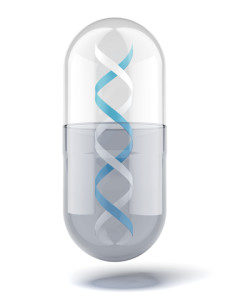Thank a Caregiver
As we wind down our week and start to prepare for the Thanksgiving holiday, we want to say how very thankful we are for the many men and women who spend countless hours caring for our elderly. Many of the residents in long term care communities don’t have family to spend the holidays with and over the years, we have witnessed the love and generosity of LTC staff who spend it with them and make them feel special. Words cannot express how grateful we are to partner with these caregivers. During Thanksgiving and throughout the year, we want to publicly say thank you. If you see a caregiver, whether on staff, a family member or friend, be sure and stop and tell them how much they are appreciated.
Happy Thanksgiving from the PGx Medical Team #grateful #LTC #caregiver
Pharmacogenetics and Mental Health
Today is World Mental Health Day. The goal is to raise awareness about mental health around the world.
In the U.S. about 1 in 5 adults experience mental illness annually.
According to the National Alliance on Mental Health, about 1 in 25 struggle with a serious mental illness.
Below are statistics on how mental health issues affect Americans:
- 1 in 5 (or 43.8 million) adults experience mental illness in a given year.
- 1 in 25 (or 10 million) adults experience a serious mental illness.
- 1 in 100 (or 2.4 million) live with schizophrenia.
- 2.6% (or 6.1 million) of Americans have bipolar disorder.
- 6.9% (or 16 million) suffer from severe depression.
- 18.1% (or 42 million) live with an anxiety disorder.
- 90% of those who die by suicide have an underlying mental illness.
And yet:
- Only 41% of adults with a mental health condition received help and less than 50% of children 8-15 received mental health services.
- Only 36.9% of those suffering from anxiety receive treatment.
- Less than 20% of Americans with moderate depressive symptoms sought help from a medical professional.
- And 4% of young adults with self-reported mental health needs forego care.
While the statistics might seem discouraging, there are a number of ways to get help if you or a loved one is struggling with a mental health condition.
Medication can be an important part of the treatment of a mental illness, but finding the right medication at the right dose, for each individual, can take time and may cause harmful side effects.
In The Mental Health Clinician, it states over the past 3 decades, new psychotropic medications have been developed in hopes of improving outcomes such as medication adherence, tolerability, safety, and efficacy. A motivating factor for this has been consistently low reported remission rates in mood disorders with first-line treatment options.
According to the online publication, approximately 40% of treated patients will experience complete remission. In an effort to improve outcomes, mental health pharmacogenomics may play a role in improving outcomes by enhancing decision making in medication selection and treatment strategy. With improved access to genetic testing, future goals within mental health should include providers maintaining a well-rounded understanding of pharmacodynamic and pharmacokinetic properties.
Pharmacogenetics and Mental Health:
Pharmacogenetics aligns current and future medications with each persons unique genetic profile. We know pharmacogenetics isn’t the “end all, be all” but it is another tool that can be used to help clinicians know the right drug, at the right dose, for the right person.
According to the NIMH (National Institute of Mental Health), less than 30% of depressed patients responded adequately to their initial antidepressant.
One thing a patient with mental health can’t afford, is “trial and error” prescribing. Pharmacogenetics testing allows healthcare professionals to identify patients who might experience adverse effects from antidepressant or antipsychotic medications and help to improve adherence.
One benefit from pharmacogenetic testing is to identify patients who rapidly metabolize medications, also known as ultra-rapid metabolizers. Test results will guide prescribing letting providers know what kind of dose that individual should be taking.
PGx Medical travels the country educating and implementing pharmacogenetics in the field of aging services. Despite the FDA’s “black box warning” of the potentially fatal side effects of antipsychotics for people suffering from dementia, these powerful drugs are too often used as a means of sedating elderly nursing home residents with dementia, as a substitute for appropriate care
Mental Health Illness has no limits. An estimated 1 in 4 Americans over the age of 18 suffers from a diagnosable mental disorder each year.
Today as we bring awareness to these statistics all over the world, let’s stop and think about the available ways to help, support and treat those affected.
For more information on pharmacogenetics, contact: PGx Medical, info@pgxmed.com or 405-509-5112.
Unique Patients Require Unique Treatment Plans
Each of us have our own unique genetic profile. So why aren’t our treatment plans tailored to fit us?
Twenty years ago the “one size fits all” approach was pretty standard when it came to prescribing medications. But today with the advances in science, healthcare professionals are able to predict your medication response. This information allows doctors to treat each patient as a unique person and tailor treatment to fit.
Many things influence how our bodies respond to medications. Nutrition, drug interactions, environment and yes, genetics. Knowing our genetics can help create an effective treatment plan customized for each individual.
It has been estimated that genetics can account for 20% to 95% of variability in drug disposition and effects as much as 40-60% of adverse drug reactions.
Pharmacogenetic testing can assist in determining if a particular medication will be effective for you, or potentially harmful.
It can improve your quality of life by helping your provider determine the right drug, at the right dose, for your genetic profile. This helps lower costs on unnecessary medications and reduce the risk of possible side effects. This is important for all patients, but particularly in the long term care setting where elderly adults on average take 8 to 10 medications per day.
Now, more than 130 of the most commonly-prescribed drugs include pharmacogenetic guidance, with many including black box warnings.
PGx Medical focuses on educating and implementing pharmacogenetics in the field of aging services. For more information on pharmacogenetics, contact PGx Medical, info@pgxmed.com or 405-509-5112.
Pharmacogenetics Could Save Your Life
Have you ever heard the phrase, “You don’t know, what you don’t know?” That is certainly the case with pharmacogenetics testing.
For many of us, our parents told us we are allergic to a medication. We may have had a reaction to a particular medication as a child, therefore it goes in our medical records and each time we go to the doctor or the pharmacy we remind them of this. And each time they ask, “what happens when you take that medication?” I would always reply the same, “I have no idea. My mom told me I had a reaction when I was a child.”
I work in the field of pharmacogenetics but had never been tested. I’m 54 years old, in good health, eat right, exercise daily and don’t take prescription medications. Until I injured my back recently. Overnight I was prescribed meloxicam for inflammation and hydrocodone for the pain. I’ve never liked taking medication and decided it was time to be tested to see if the medications that were prescribed, even had the ability to give me therapy.
So I went through the simple process of having my PCP order the test and swab my cheek. Within approximately 72 hours my results were ready and everything my mother had told me from a very young age, were validated in this scientific-based test.
Not only am I allergic to codeine, my test results show due to my genetic makeup, that if taken I may experience life threatening or fatal respiratory distress or signs of overdose. See my results for codeine below.
**Avoid use if clinically possible. Avoid codeine use due to potential for toxicity. Individuals who are CYP2D6 ultra-rapid metabolizers may experience life threatening or fatal respiratory distress or signs of overdose (Drug Label; CPIC Guidelines)
This led me to think, how many people have these adverse reactions and are diagnosed with an overdose or some other type of respiratory problems? How would you know if you haven’t been tested? Again, you don’t know, what you don’t know.
So how do doctors and pharmacists know how your body metabolizes medications? Is there a standard “one dose fits all” approach to prescribing? I’ve heard some say they favor one medication over another so that is the drug of choice for their patients. But we all know everyone is uniquely made and medications react differently according to each individuals genetic profile.
As of now, medicare covers the cost of pharmacogenetics testing and in select states, medicaid covers the cost of the test. My hope is that one day soon more private insurance providers will see the benefits of personalized medicine. Not only from a cost savings standpoint – which is huge when you consider the length a patient stays on a medication that doesn’t have the ability to give them therapy, hospitalization from adverse events, falls in the elderly and the list goes on and on.
But to me, the biggest reason is to know from a very young age how “my” body processes medications so I don’t spend a lifetime taking drugs that will do more harm than good. According to an article in aafp.org, drugs cause approximately 20 percent of community-and hospital-acquired episodes of acute renal failure. Among older adults, the incidence of drug-induced nephrotoxicity may be as high as 66 percent. Just think of what a lifetime of drugs — the wrong drugs, is doing to your body.
For now, we will continue our work educating and implementing pharmacogenetics in long term care and hopefully make a difference in the lives of elderly adults across the country. Help give them a better quality of life and peace of mind knowing they are in control of their own health. Don’t we owe that to them?
For more information on pharmacogenetics, contact PGx Medical, info@pgxmed.com or 405-509-5112.




